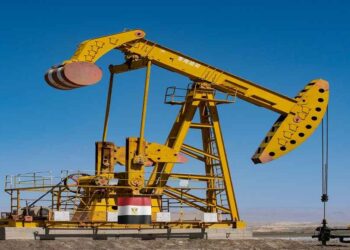The demand when it comes to natural gas within the EU has gone on to take a downturn, and that too for the for the second year in a row since 2023, thereby reaching the lowest ever level since 2008, suggests the data coming from Eurostat, which happens to be the statistical office of the European Union.
The data goes on to suggest that following an annual cut of 13% in 2022, the demand when it comes to natural gas within the European Union fell by 7.4% more in 2023, hence reaching 12.72mn terajoules. This happens to be the lowest demand on record ever since the monthly aggregated data collection began in 2008.
The decrease happens to be perceived to be pushed by the measures that are outlined within Council Regulation 2022/1369 in terms of coordinated demand-reduction steps for gas, which is a part of the REPowerEU strategy that was announced in March 2022 and thereafter presented a couple of months later.
As the Russia and Ukraine war went on to cause turmoil in the energy market of Europe, the REPowerEU plan got introduced so as to diversify the supplies of gas, accelerate the renewable gases roll out and at the same time replace the gas in heating as well as power generation, with the end goal of ending the dependence of the EU on fossil fuels from Russia and also tackling the climate crisis.
In sync with this, the majority of natural gas consumers within the EU went on decrease their demand in 2023. In comparison to 2022, the natural gas within Germany went on to dip by 3.8%, thereby reaching 2.96 million terajoules. In Italy, it fell by 10%, leveling at 2.35 million terajoules, and in France, a demand of 1.36 million terajoules was seen, clocking a dip of 11.7%.
While there happened to be a decrease in 21 from 27 EU nations, the left-over 6 went on to experience a demand boost. Finland as well as Sweden happened to be the only nations that went on to record a rise that was greater than 10%, with 25.6% as well as 11.1% growth, respectively.
The demand grew by 5.3% in Poland, whereas in Malta it saw a growth of 4.5%, which was followed by a 1.1% rise in Denmark and 0.8% in Croatia. In addition to this, the EU happens to be taking other steps so as to speed up decarbonization, with one of them being the very recent move of leaving the Energy Charter Treaty, which happens to be a 20-year-old multilateral treaty based on energy security that is described as climate hostile. After numerous member states made a decision to exit the treaty individually, the European Commission went on to propose a much-coordinated withdrawal from the treaty, thereby quoting the incompatibility with the climate objectives that come under the European Green Deal as well as the Paris Agreement as the reason for the decision.



















































